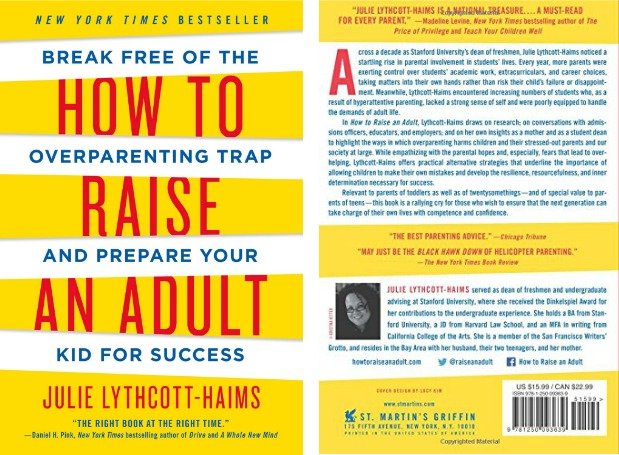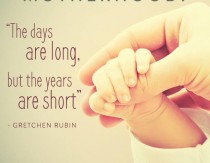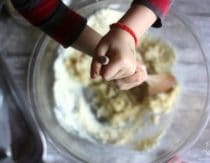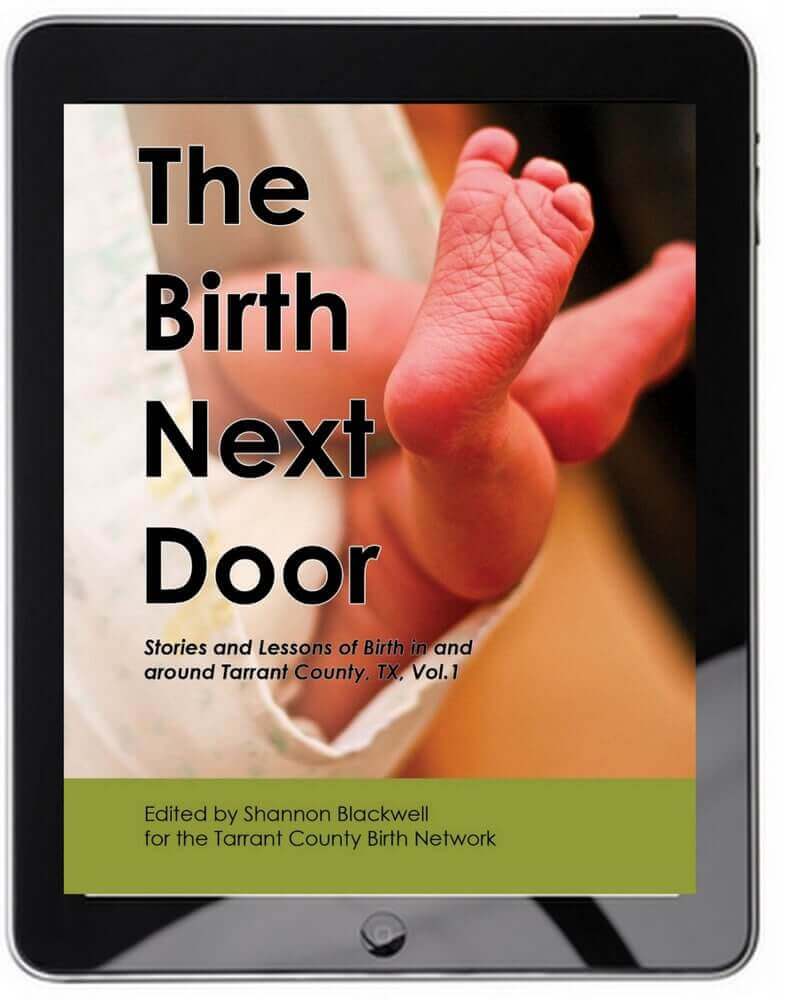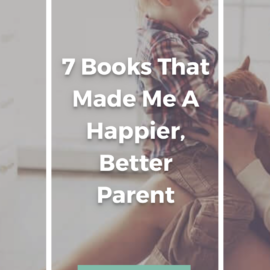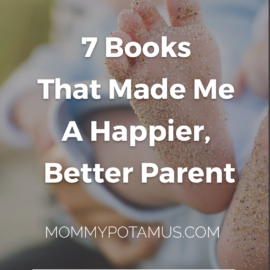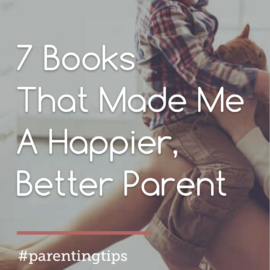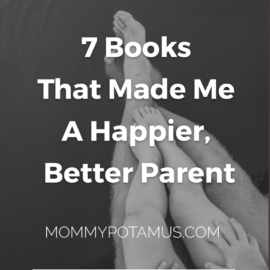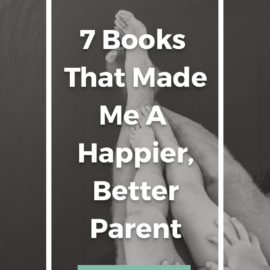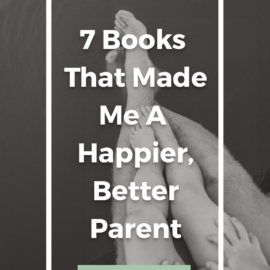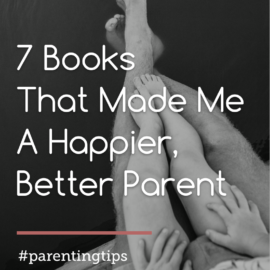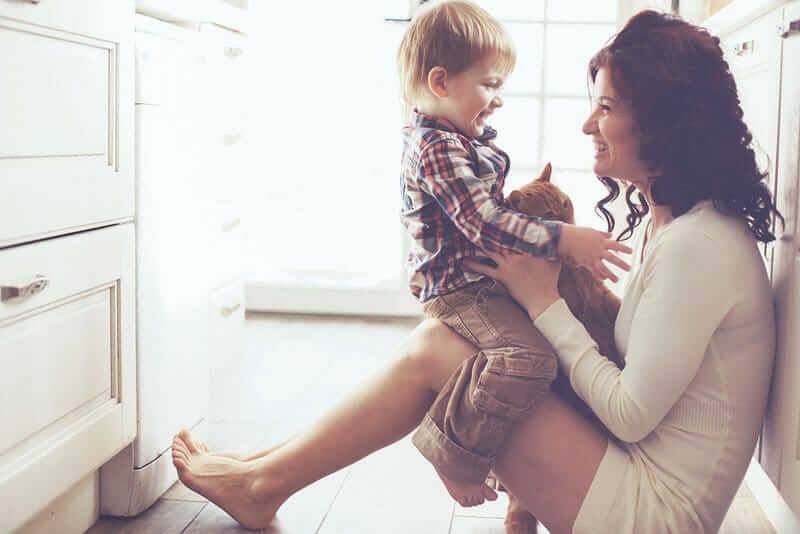
Parenting books are full of acronyms. Letters that stand for important, decisive actions. But can anyone really remember the correct acronym when kids are melting down, feeling excluded, or facing another challenge?
Personally, I could never remember if I was supposed to ACT or CARE or something else entirely. All I could think of was to Stop, Drop, and Roll. While this approach failed to help the situation, at least I know my kids are well prepared for a small kitchen fire.
If you loathe forgettable acronyms as much as I do, don’t give up on the parenting book genre just yet. Below are seven books that have truly made me a happier, better parent.
Now, full disclosure: I “read” almost all of these books via audiobook as I washed dishes, cleaned my house, or took a walk. I download them to my phone and then just place it in airplane mode anytime I want to listen – I love that it keeps track of where I am so I can quickly pick up and listen to a few minutes while folding laundry. Okay, on to the list!
How to Raise an Adult
Raise your hand if have ever felt mom guilt. I see your hand over there, thank you. You are part of a very exclusive, multi-million member club.
How To Raise An Adult was the undoing of a lot of mom guilt for me. The author, Julie Lythcott-Haims, is a former Stanford University freshman advisor who has seen firsthand which parenting approaches help kids thrive in college and beyond. She also knows the kinds of missteps parents often make, and she’s put those insights into this book for you and me.
Contrary to what you might expect from an Ivy-league advisor, she does NOT recommend shuttling kids from debate club to soccer practice to space camp. Her approach is more like the Konmarie method of decluttering for parenting. She asks us to do less, not more, and she explains how do that in a way that nurtures kids toward resourcefulness, resilience, emotional intelligence and competence.
The Opposite of Spoiled
Did you ever ask your parents how much money they made? I did when I was little, and I got the standard parent reply: Asking is considered rude and the answer is none of my business. (In my parents case it was phrased much more kindly, but that was the general idea.)
We want our kids to be smart about money and learn things like self-control, saving, and generosity, but maybe we’re not sure how to do that. Maybe we weren’t taught much about finances and still struggle with this topic as an adult.
In The Opposite of Spoiled, New York Times finance columnist Ron Lieber shows us how to have meaningful conversations with our kids that will help them become grounded, patient, grateful, thrifty and able to persevere. I don’t usually read finance-related books for fun, but I could not put this one down.
Leiber turned an uncomfortable topic on its head and gives tips that make things exciting and practical. And not just for my kids – a lot of what Leiber had to say helped me reframe the way I think about money in the context of my family’s values and priorities.
Important note: While writing this book, Lieber interviewed families on dairy farms in Utah, wealthy families in the Hamptons, and teachers whose annual salaries are less than what their students parents earn in a month. Not every choice made by each family is realistic for everyone and the book has been criticized by some for that reason, but I think there is something valuable to be learned from every story that was shared.
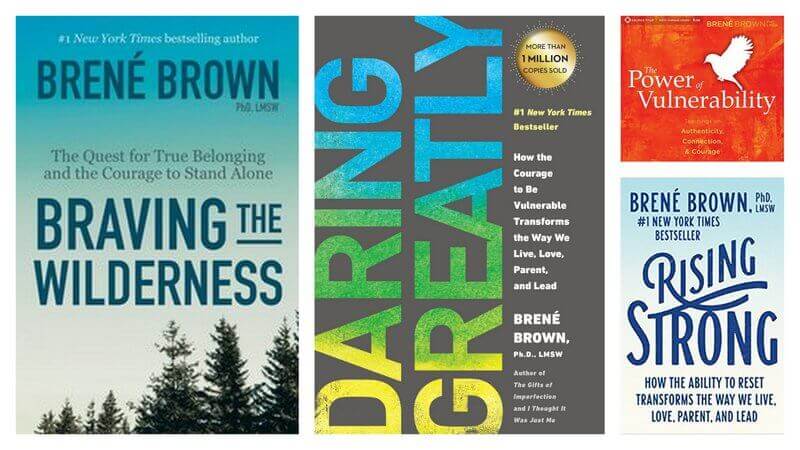
Everything by Brené Brown
Technically “Everything by Brené Brown” is not a book, but I can’t pick just one title to recommend.
Part of being a better parent is learning to be a better me. As it turns out, learning to be more compassionate with myself effortlessly made me more patient with my kids.
I highly recommend her audiobooks as long as they’re actually read by Brené. She speaks with authenticity and conviction like few speakers I’ve ever heard, and thanks to her I’ve cried tears of relief more than once while washing dishes.
Here’s what I’ve read and can recommend personally. There is some overlap between them but I found it helpful to hear the main points more than once.
- The Power of Vulnerability
- Daring Greatly: How the Courage to Be Vulnerable Transforms the Way We Live, Love, Parent, and Lead
- Rising Strong: How the Ability to Reset Transforms the Way We Live, Love, Parent, and Lead
- Braving the Wilderness: The Quest for True Belonging and the Courage to Stand Alone
Playborhood
Katie of Wellness Mama and I have been having lots of good conversations about why kids need free, unstructured play, but these days that’s easier said than done. I love the practical ideas in this book for creating Playborhoods – aka neighborhoods that create opportunities for play in front (when safe to do so) and back yards, plus ideas for shared spaces in apartments and more.
What’s Next On My Reading List
I haven’t read these yet, but they come highly recommended by friends.
- Balanced and Barefoot: How Unrestricted Outdoor Play Makes for Strong, Confident, and Capable Children
- The Gift of Failure: How the Best Parents Learn to Let Go So Their Children Can Succeed
- The Happiest Kids in the World: How Dutch Parents Help Their Kids (and Themselves) by Doing Less
- Bringing Up Bébé: One American Mother Discovers the Wisdom of French Parenting
Do you have a favorite parenting book? Please let me know what it is in the comments below!

